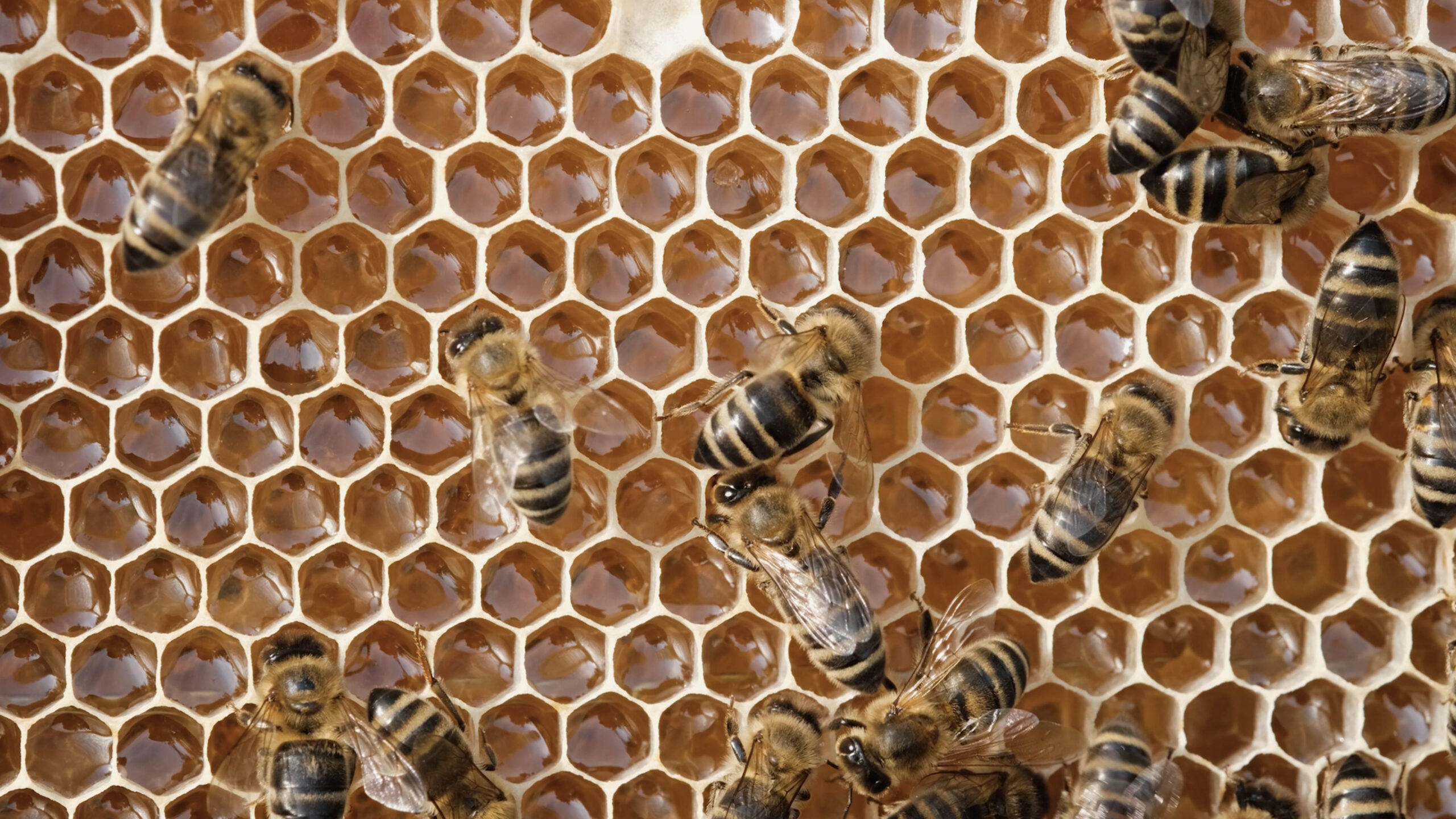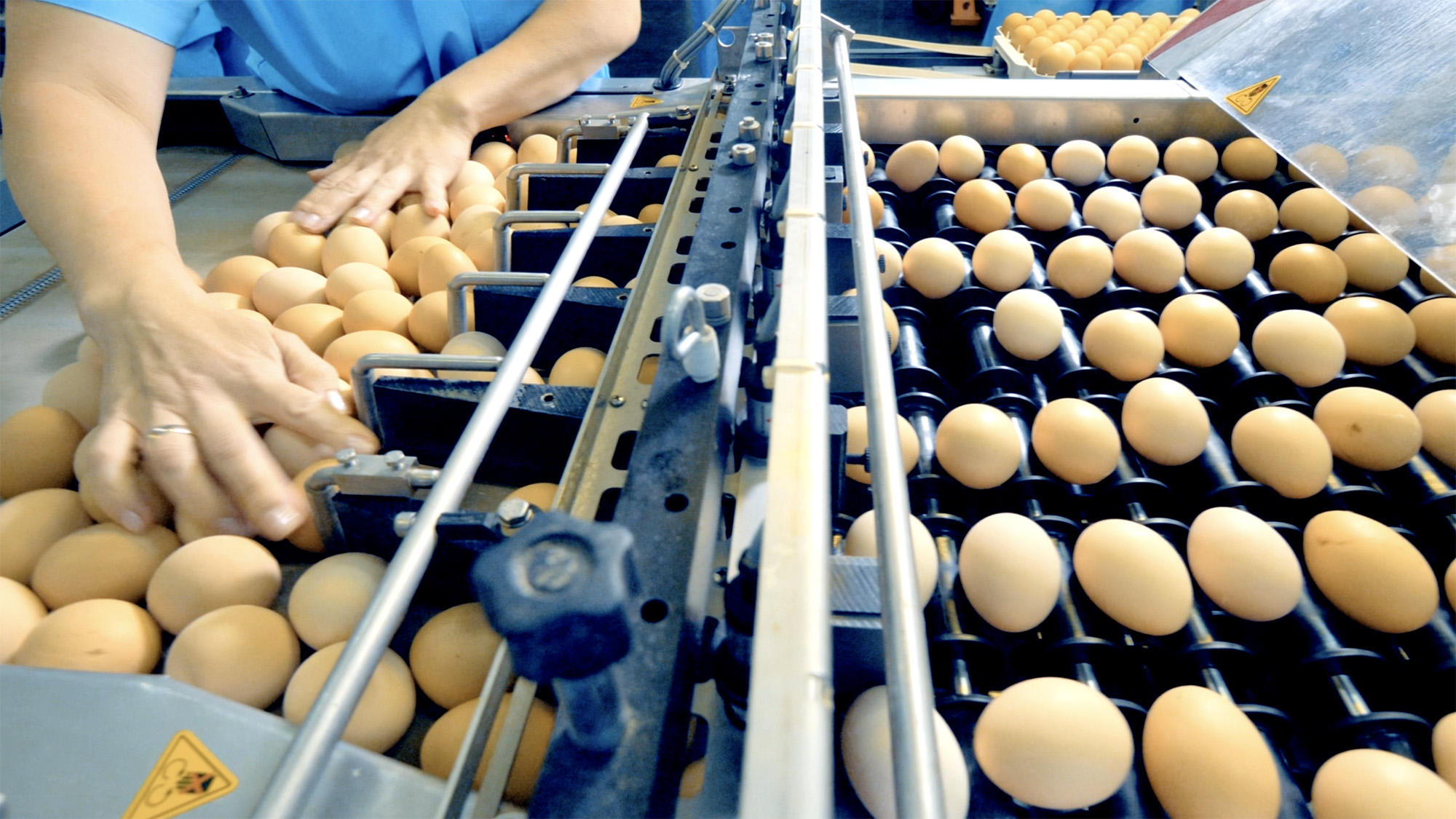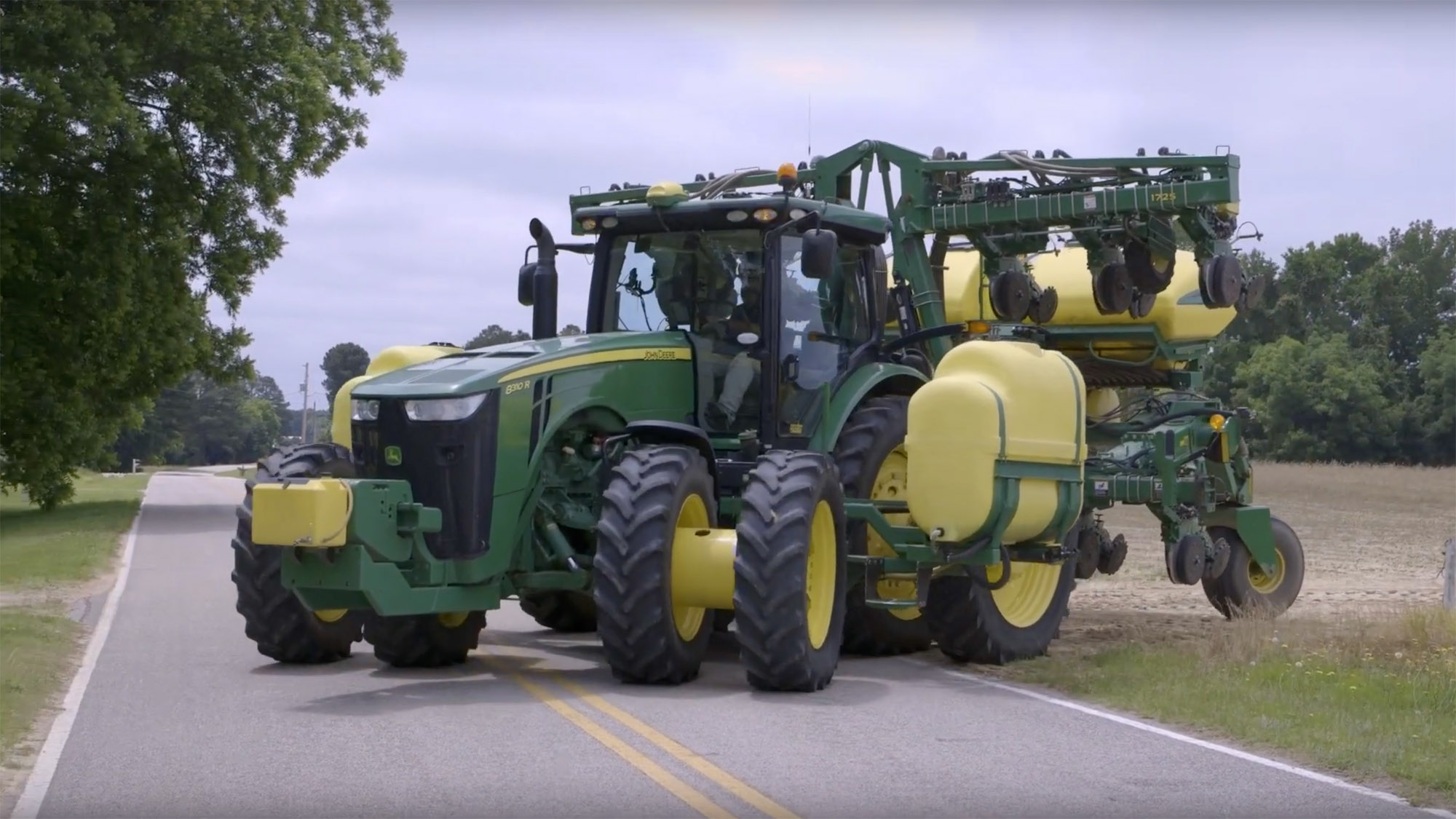Honey bees are one of the most beloved – and important – insects in the animal kingdom. Instantly recognizable by their fuzzy black and yellow-striped abdomens, honey bees are prized the world over for their pollinating prowess.
Honey bees are responsible for pollinating 80% of all flowering plants.
In fact, more than a third of the world’s food supply relies on honey bees for pollination. That includes over 100 fruits, vegetables and nuts, the cornerstones of a healthy everyday diet for humans and animals alike.
What is pollination?
Pollination is the transfer of pollen from plants’ male parts (“anther,” which produces the pollen) to the female parts (“pistil”). Honey bees are prolific pollinators as they forage from plant to plant in search of food. It’s one of nature’s most important symbiotic relationships, as honey bees aid in the reproduction of plants, which in turn feed the bees. Many plants cannot reproduce without pollinators like bees, bats, birds, butterflies and more.
In North Carolina, there are abundant resources to help hives thrive — the honey bee is our state insect after all. North Carolina is home to both a nationally renowned apiculture program at NC State University, led by Extension specialist David Tarpy, and a buzzing state beekeepers association with thousands of members statewide.
In this edition of Homegrown, discover more about the bustling and beautiful lives of bees, how NC State helps to promote and protect these essential pollinators, and what you can do to help ensure honey bees’ health for generations to come.
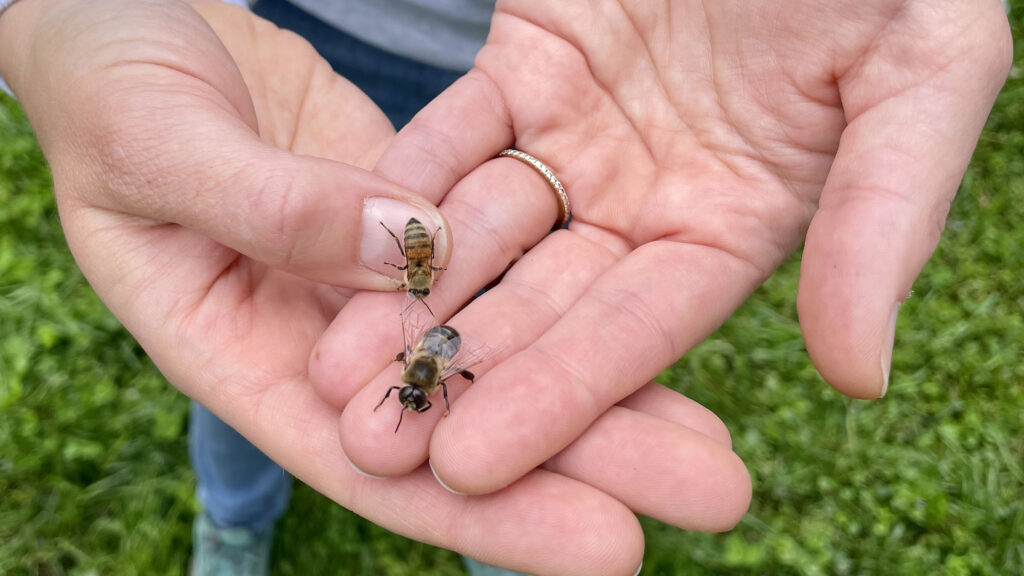
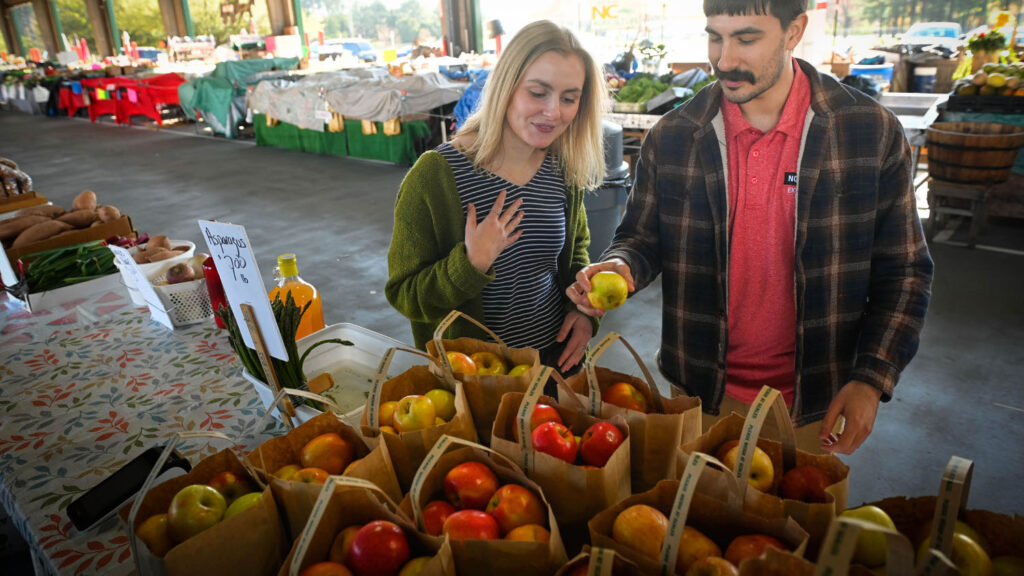
Problems for Pollinators
The steady hum of honey bees’ beating wings has traditionally signaled the start of spring across North Carolina, blending into the background of our daily lives as part of the season’s soundtrack — or so it was.
Despite their immense popularity and value, honey bees have become increasingly difficult to find in the wild in recent years. Ever wonder why you don’t see as many bees outside anymore? A potent mix of factors, from climate change and loss of habitat to illnesses and pesticides, have decimated bee populations.
On average, beekeepers lose around 40% of their honey bee colonies every year.
These days most honey bees are semi-domesticated, meaning they’re managed by beekeepers and researchers like Tarpy, an NC State Extension apiculture specialist. These benefactors protect honey bees, promote their benefits and research ways to better manage colonies and their populations.
What is apiculture?
Apiculture (pronounced with a long a like “ape”) is the science of raising or maintaining colonies of bees and their hives. In short, apiculture is the scientific field of beekeeping.
As a result, “honey bee populations are more fluctuating rather than continuously diminishing now,” according to Tarpy. “Honey bees are not at risk of going extinct, but we need to come up with better means to be able to keep them sustainably.”
You Can Help Too!
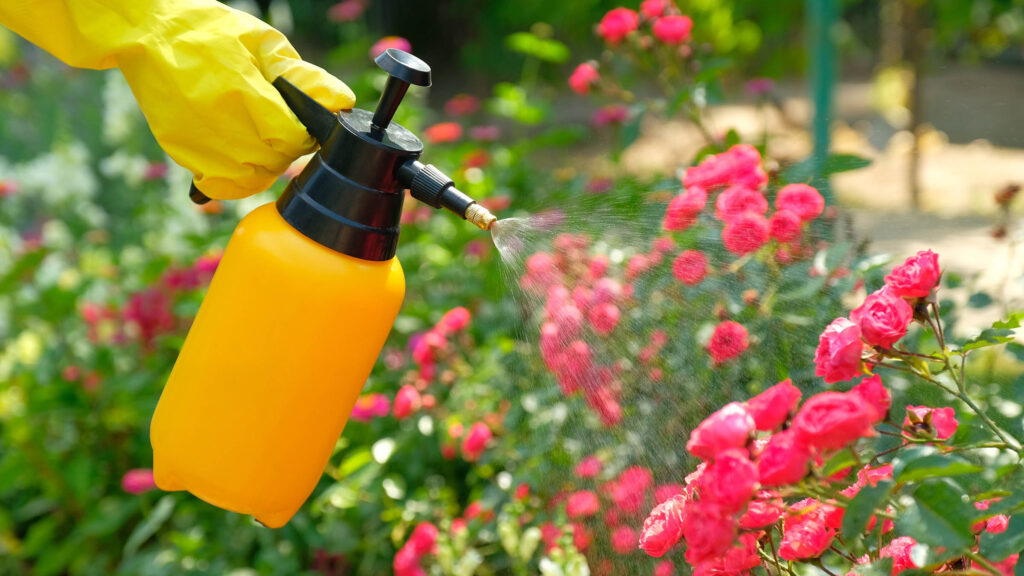
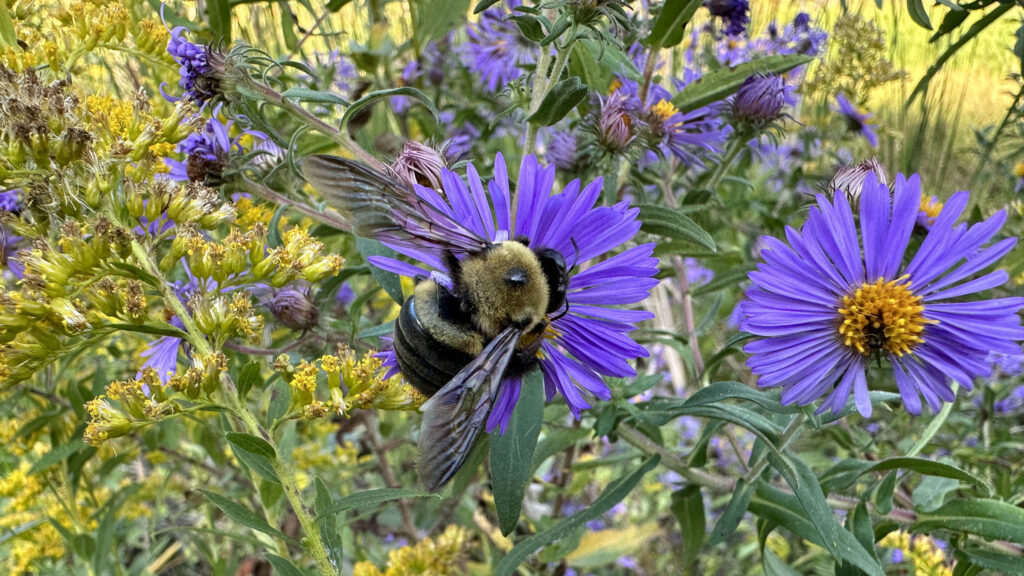
The ABCs of N.C. Bees
While there are around 500 species of bees native to North Carolina, honey bees are not one of them.
Arguably our most important import of all time – up there with penicillin and Lionel Messi – honey bees were first brought to America and the Virginia colony by the earliest European settlers around 1622. From there, honey bees surged southward to North Carolina by the end of the century, where beekeeping quickly caught on.
Honey bees first appeared in North Carolina in the late 17th century, nearly 400 years ago.
Four centuries later, honey bees are the workhorses of North Carolina’s $111 billion agriculture industry, helping to sustain our food supply and economy. The bees also produce over 120,000 pounds of beeswax, in addition to nearly 6 million pounds of honey worth around $10 million.
From pollinating plants and growing our food to nurturing ecosystems and supporting entire industries, honey bees play a vital role in our everyday lives.
Busy bees, indeed.
Bee the Solution
NC State has partnered with the N.C. State Beekeepers Association and beekeepers statewide to develop a honey bee research and education program like no other. The initiative includes a new professorship created specifically for honey bee research — the first of its kind in the U.S. — and a state-of-the-art apiculture field lab.
Ultimately, this partnership will bolster NC State’s beekeeper education efforts, solidify North Carolina as the nation’s leader in bee research, and ensure that honey bees survive and thrive long into the future.
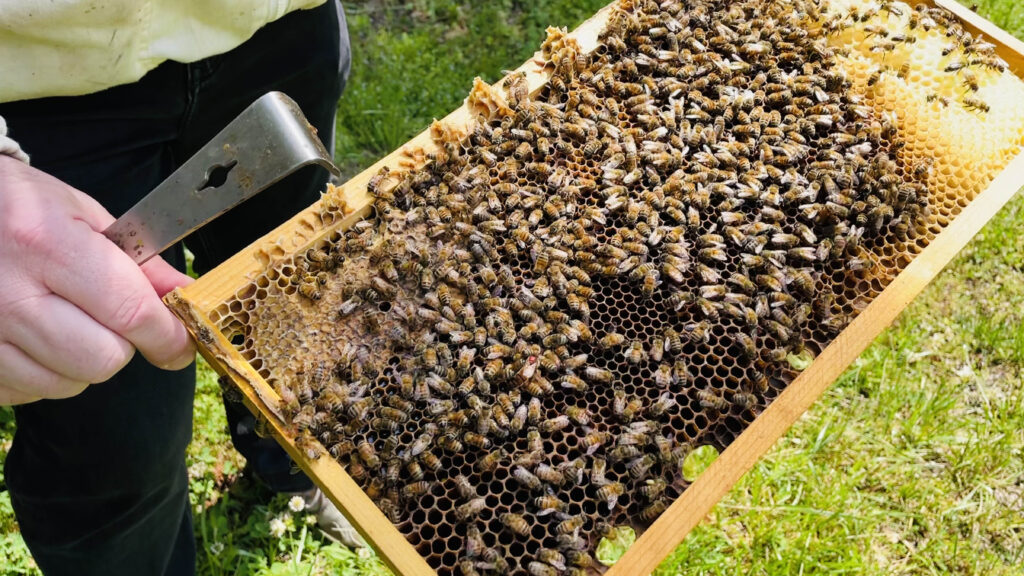
Did You Know?
- As adept learners, honey bees can recognize human faces
- In 1973, the honey bee became the Official State Insect of North Carolina
- Honey bees pollinate more than $15 billion worth of crops every year in the U.S. alone
- Some honey bees in North Carolina’s Coastal Plain produce purple honey
- N.C. DMV offers “Save the Honey Bee” license plates, with a portion of the proceeds going to the beekeepers association and NC State apiculture
- Categories:
